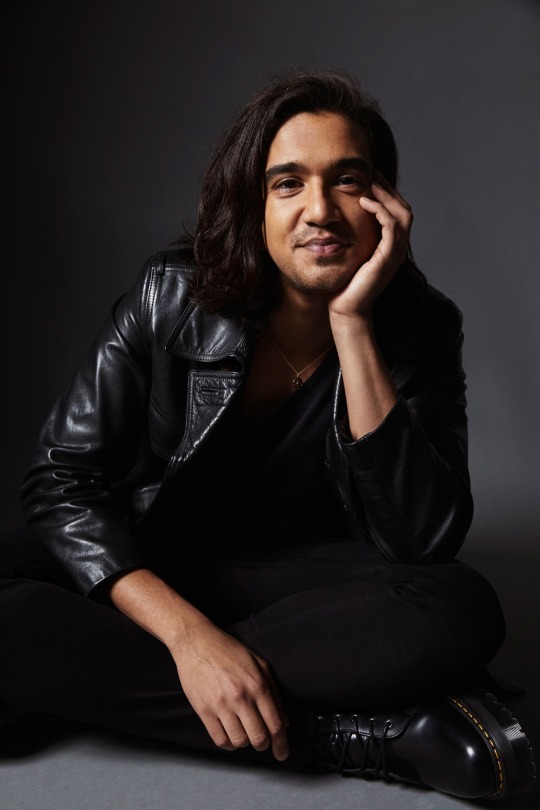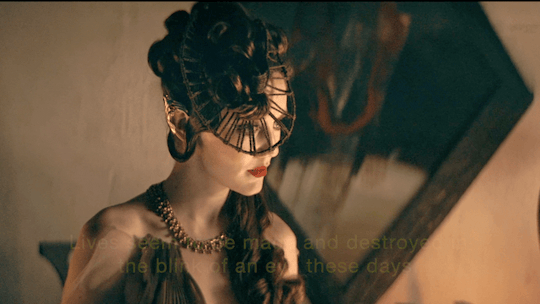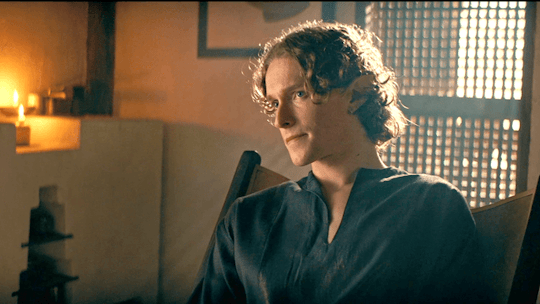#nathaniel curtis
Text
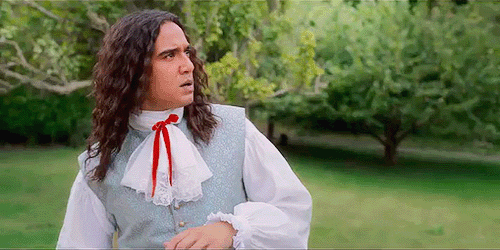
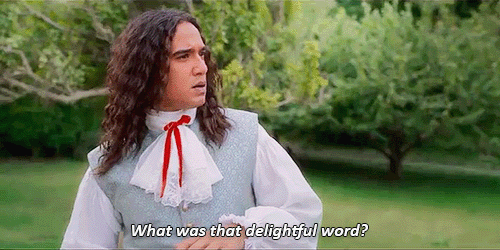

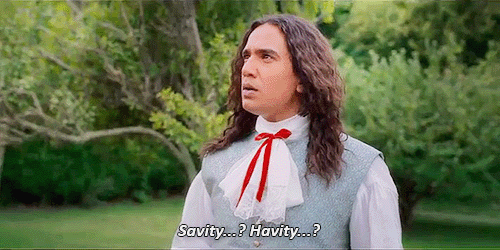
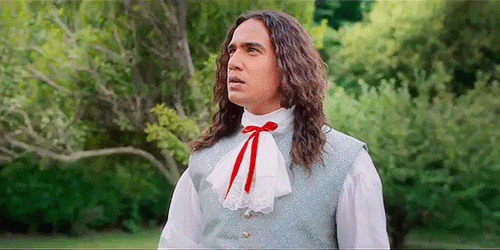
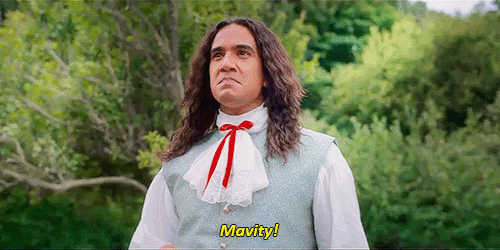
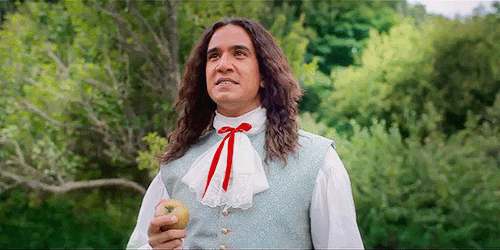
I think this week's episode was really funny, I don't know why y'all are crying. Shame it ended after this scene tho.
290 notes
·
View notes
Text
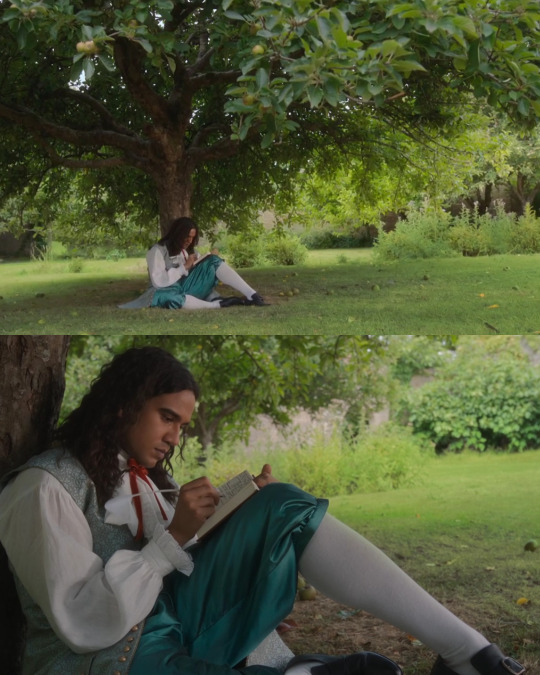
Doctor Who - "Wild Blue Yonder" (2023)
Thinking "Isaac Newton is Hot af" wasn't on my 2023 to do list but here we are.
#doctor who#dr who#whoniverse#whovian#nathaniel curtis#isaac newton#sci fi#the tardis#tardis#gallifrey#time lords#new who#the doctor#david tennant#catherine tate#donna noble#screencaps#time and relative dimension in space#60th anniversary#doctor who 60th anniversary#wild blue yonder
113 notes
·
View notes
Text
'Russell T. Davies recently spoke up about why he believes Andrew Scott was overlooked by the BAFTAs this year, reminding us about an important component to the ongoing conversation about queer actors playing queer roles.
When the BAFTA nominees were announced this year, All of Us Strangers received a well-deserved six nominations, although it ultimately did not win any of its categories. But the number of nominations it received — for Outstanding British Film, Director, Adapted Screenplay, Supporting Actor, Supporting Actress, and Casting — made a lack of nod for Scott’s leading role feel like a pointedly glaring omission.
“What I think happened there was, when a gay man plays a gay man, he’s not considered to be acting," Davies said during a recent queer representation in media panel, according to Attitude. “I genuinely think that happened there, that people thought, ‘Oh, it’s very good, but he’s not acting there. He’s not reaching; he was just being himself.”
The Doctor Who showrunner went on to explain that that’s part of why he finds it so important to make sure queer actors are being considered for and cast in queer roles — a controversial topic, as it’s often interpreted as suggesting straight actors (or actors presumed to be straight) shouldn’t be allowed to play queer characters, but the reality is a lot more nuanced than that.
“If a queer person plays a queer role, people are like, ‘Oh yeah, very well done, lovely,’” actor Nathaniel Curtis said during the same panel. “But if a straight actor plays a queer role, a lot of the time, they’re like, ‘Give them an Oscar.’”
And the BAFTAs snub makes it even more frustrating that Scott was subjected to being asked about another actor’s nudity in a movie he wasn’t even in on the red carpet for the event, when the time could have been spent talking more about the role for which he deserved more recognition.
According to Davies, Scott gave “a world-class performance [that] was massively underrated because he’s gay and very publicly and visibly gay.” And unfortunately, he might not be wrong.'
#Russell T. Davies#Doctor Who#BAFTAs#Andrew Scott#All of Us Strangers#Nathaniel Curtis#Andrew Haigh#Paul Mescal#Claire Foy
23 notes
·
View notes
Photo
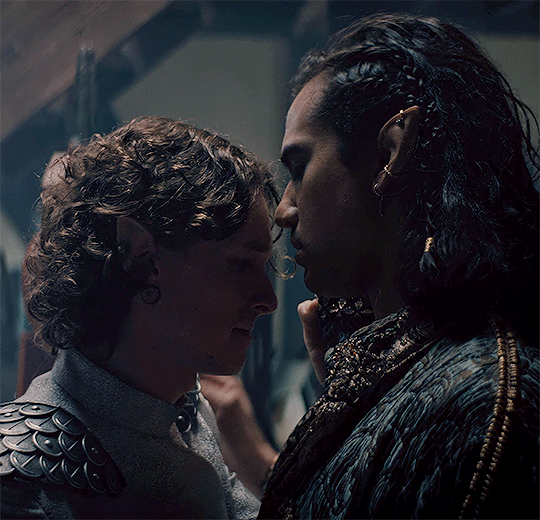

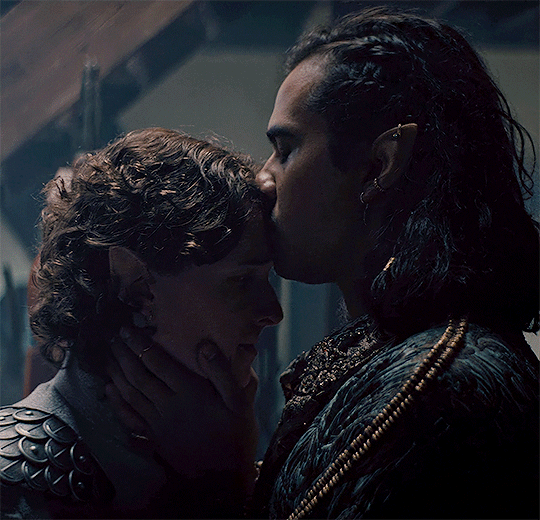
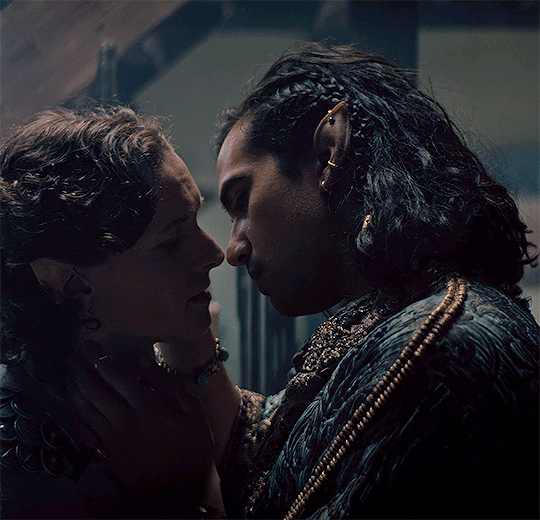
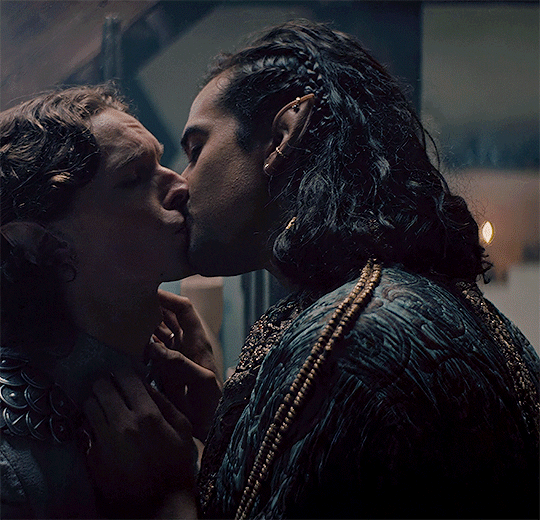

EREDIN & BRÍAN
2022 • The Witcher: Blood Origin • S1·EP2 • dir. Vicky Jewson
#the witcher#fantasyedit#the witcher: blood origin#the witcher blood origin#lgbtedit#blood origin#eredin x brían#affection#eredin bréacc glas#jacob collins-levy#nathaniel curtis#queer#lgbtq+#gay#lgbt#gay couple#romancegifs
155 notes
·
View notes
Text
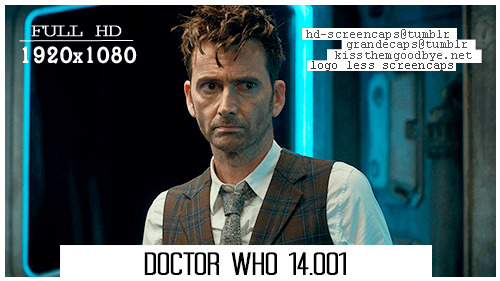
Doctor Who 14.001 - "Wild Blue Yonder"
size: 1920x1080
3,257 screencaps
#doctor who#dwedit#doctorwhoedit#screencaps#david tennant#catherine tate#bernard cribbins#nathaniel curtis#hd screencaps#grandecaps#capped by lastsongs
21 notes
·
View notes
Text
Putting the Mid in Midnight: Wild Blue Yonder
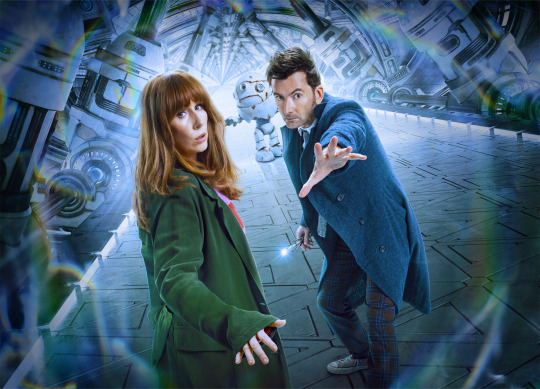
If I were to mention the film “The Horror at Party Beach,” no one would blame you for having never heard of it. In the annals of horror history, it left minimal impact on the genre. Why then were audiences asked to sign a “fright waiver,” before being permitted to see the film? Because it was never about the audience dying of fright. It was a dare to the viewer, one almost as old as cinema itself. William Castle used to start his films with a warning to the more delicate members of the audience. Reports of people fainting during “The Exorcist,” or more recently “Terrifier 2,” create a buzz around those films. Can you survive the horror or will you wind up in the hospital? The only way to know for sure is to buy a ticket! This is why when Russell T Davies issued a warning that “Wild Blue Yonder,” was possibly too scary for the kiddies, I saw it for what it was.
While I don’t doubt there was some concern that certain children may be disturbed by the imagery and tone of last night’s episode, it feels more like Davies asking audiences to just go with it. Similarly, Davies also asked us to just go with the idea of David Tennant returning by first introducing us to Ncuti Gatwa. “This isn’t a forever thing or the show moving backwards. Just go it.” After seeing how tumultuous the fandom has been since *checks notes* 1963, it feels like Davies’ tactic to unite the fandom is to encourage them to just go with it. It also feels like Davies is riffing a little, trying new things. “Wild Blue Yonder,” is an engaging exploration of the new while also referencing some of the old. Yet despite all of its experimentation, much of it feels like familiar territory.
First and foremost, I would like to state that I admire the hell out of this episode. On the rad vs trad debate, this puts one giant foot down for rad. With that said and out of the way, we need to talk about that intro. When it comes to the race of Isaac Newton you might say the show should be educational and therefore accurate in its depiction of race. But pretty early on, Doctor Who abandoned all pretence of being educational. And more recent attempts at being educational have left us with Jodie Whittaker spouting off a Wikipedia summary about an asteroid. You could also argue that this is a different type of education. A lesson in what it feels like to see your own people played by someone white. Considering Doctor Who’s history of brownface, I’m gonna say y’all need to chill the fuck out. Just go with it.

My only issue with this scene is much like the issue I had with the Children in Need special. The humour just falls so flat for me. It was a big thud on arrival. From the Kaled anagram sequence to mavity, it just doesn’t work for me. Part of me wonders if this isn’t in part because David Tennant and Catherine Tate were never on set with Nathaniel Curtis. There was no chance of improving with improv. I mentioned last week that some of the representation stuff also felt clunky. It’s weird too because when the show isn’t actively trying to make me laugh or view trans people like myself as valid, it comes off as funny and validating. Sylvia’s tuna masala and or Donna’s love for Rose do such a better job at both, yet they’re the quieter moments of the show thus far. It’s ironic to me that the more powerful moments of the second Davies era have been understated.
It’s easy to write this overstatement off, however. Thinking back to the 50th anniversary special, Clara’s line of turning people into frogs fell flat for me at the time. Now I look back at is as kind of charming. And furthermore, these big events like Children in Need, Christmas, or anniversaries get away with a bit of excess. The humour is more broad because they expect more people to be watching. It’s a time of merriment. It’s also part of why I appreciate “Wild Blue Yonder,” so much. Davies was attempting a weirder “Midnight-esque” episode in the middle of a highly publicised media event. He knew it was a bit of an ask for some audience members. Once again, it feels like an invitation to the rest of the fandom to allow room for exploration. If Doctor Who and the fandom are currently fractured, do we really need to put it back together in the same shape? Does it even need being put back together? Why not just fill the cracks with some seeds and see what grows out of them?
Since “The Star Beast,” aired, I’ve seen some people complaining that the sonic screwdriver has become too OP. Apparently, making sonic barriers is less believable than joining two cut ends of barbed wire. While I do understand that the sonic screwdriver can be a crutch for bad writing, I also understand it to be incredibly cool. Like, I’m sorry, cool beats your need for locked doors any day. If you need absolute realism in what you watch, might I suggest the window? It’s a freaking magic wand, people. Let it be magical. Doctor Who isn’t hard sci-fi. If Doctor Who’s sci-fi were a cheese, it would be brie. It looks hard but it’s gooey at its centre. You can argue that the sonic screwdriver being capable of repairing the TARDIS is too OP, but it’s also the device which removes two major plot conveniences in this episode- the TARDIS and the sonic screwdriver.

The Doctor and Donna are doing this one without a safety net. They’ve both been pared back to who they are as people. I had a feeling going in that this episode was going to have a smaller cast. It feels like Davies taking a stab at a sort of “Heaven Sent,” narrative that dissects the Doctor and Donna. In other ways it feels like an homage to Davies' own pared-back classic “Midnight,” which has gained cult status as one of his best scripts. In the short stories of Robert Aickman, readers are often left unaware when exactly things get strange. His protagonists walk through their worlds unaware of exactly when things turned hostile until they’re in the thick of it. In the same manner, much of the opening scenes of “Wild Blue Yonder,” leave us waiting for the other shoe to drop, and when it does, you may not notice right away.
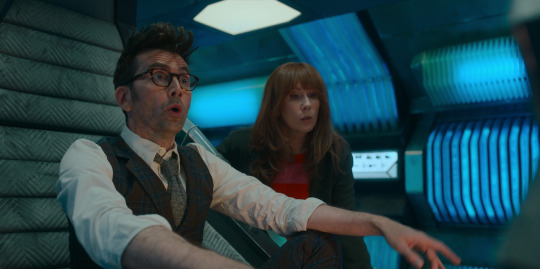
Coming directly off the tonal whiplash of the Isaac Newton scene to a scenario so dangerous that it set off the H.A.D.S. system, it’s nice that the episode eases into its weirdness. The TARDIS’ eerie recitation of the song “Wild Blue Yonder,” echoes through the air with a reminder from Wilf, via Donna, that the song is not a jolly anthem, but a declaration of war. So we sit in the mystery of this gigantic ship sitting at the edge of the universe with its shifting corridors and its slow robot, as we try to ignore the clanking sound just outside the ship. It feels a bit like Doctor Who doing a haunted house in space, but you’re not exactly sure why. It’s Amityville in Space, but good.
With no sonic or TARDIS at his disposal, the Doctor can’t just point his magic wand. Even worse, the Doctor doesn’t even have the benefit of the TARDIS’ translation circuit. Whatever language this civilization uses on their ship, it’s not one of the 57,000,000,205 languages the Doctor can speak. But one language the Doctor can speak is mathematics. The Doctor may not have his tools, but he still has his mind. Deciphering the base ten of this unknown species, the Doctor can begin piecing together what is going on in this ship. Perhaps if he can figure out why an airlock had been jettisoned in the past, it might give a clue to what is happening. If he can remove the threat from the ship, the TARDIS might return. Otherwise, he and Donna could be forever stranded on this ghost ship hovering over nothingness.

If this ship is haunted, we’re about to meet the ghosts who call this place home. The Not-Things arrive quietly. So quiet that the shot establishing two Doctors and two Donnas in separate rooms initially seemed like a bad edit. When did the two of them get split up? It’s hard to remember. But we’re pretty sure the Doctor who licked the goo on the circuit is the real deal. Tasting things to figure out what they are is a classic Tennant move. The Doctor pretending to have a bad reaction to the goo evoked the Fourth Doctor pretending to go mad with power over the Key to Time. I wonder now if that wasn’t the Doctor testing a theory in the back of his mind because Donna was feeling a bit off. The Doctor has shown in the past that he knows when his companion is compromised in some way. Last week we were given early warning signs that the Doctor was becoming increasingly wary of the Meep.
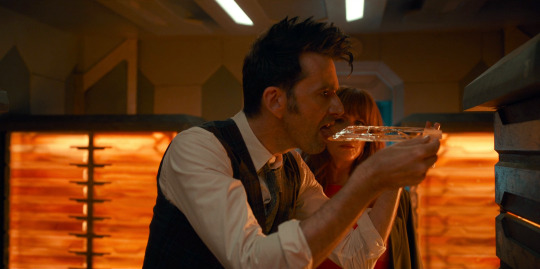
Having the characters note a fluctuation in the temperature or the line “My arms are too long,” felt right at home with things like “Don’t blink!” or “Hey, who turned out the lights?” Their visible breath as an omen of ill tidings sits comfortably next to having two shadows or marking your skin to remember the Silence. I love how Doctor Who can turn everyday things like statues, shop dummies, or seeing your breath into danger. Those are the moments for the children hiding behind the sofa. One of Doctor Who’s greatest strengths is its ability to use allegory to help children face real fears. These are the modern equivalent of Grimm’s Fairy Tales.

For a brief moment, I worried the Not-Things were going to spend the whole episode with Donkey Kong arms. While an effective and trippy visual, it would have started to look goofy after the initial shock had worn off. Watching “Return to Oz,” as an adult, I’m no longer scared of the Wheelers, but as a child they had me covering my eyes. Seeing the Doctor and Donna in these twisted forms was disturbing and creepy. I can see how this episode will stick with younger members of the audience for years. I also imagine it as future fetish fuel, but that’s unavoidable. In the words of Community’s Dean Pelton- “This better not awaken anything in me.”

Watching the Doctor and Donna drive away from these twisted angry giants reminded me of Leela and K9 fleeing guards in “The Sunmakers,” or even bits from “Terminator 2: Judgement Day.” I also got whiffs of “Sin-Eaters,” from the Titan comics line. While the sharp teeth and asymmetric contortions of the distorted Doctor and Donna do a lot to sell these monsters, it’s the performances of the actors that tip the scale. Other than the times we’re not supposed to know who is who, they feel like different characters. It started tricking my brain into thinking of the Not-Things as completely different actors.
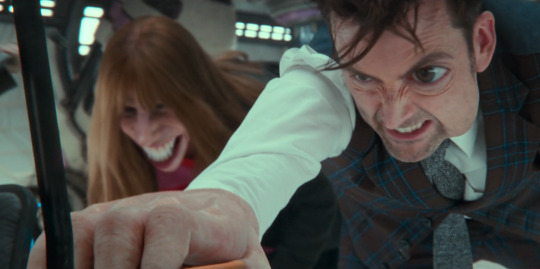
An issue I have seen come up about the Not-Things is their special effects. If you were worried that the Disney+ money was going to make the show look too polished, worry not. While many of the shots in this episode were very good, and I love the continued use of practical effects, some of the effects of the Not-Things were a bit naff. But much like the Power Rangers effects from the acid ocean scene in “The Halloween Apocalypse,” I found it charming. The only one shot from any of these sequences that I would call bad is the shot of the Not-Thing Doctor with his head between his legs. It should have either been cut or reworked.
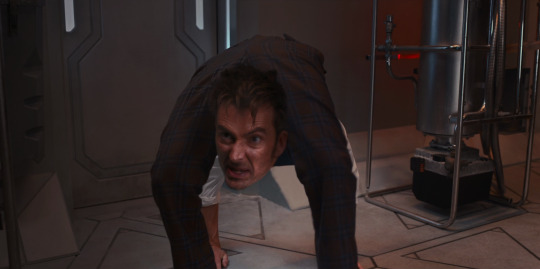
It’s hard to talk about the plot in this story. Mysteries are looming, but for the most part it’s a series of chases punctuated by “Invasion of the Body Snatchers,” paranoia. But that isn’t to say that the screen time is wasted. Davies uses this as an opportunity to explore the Doctor’s emotional state after the events of the Flux. Something which hadn’t seemed to affect the Doctor much since the end of “The Vanquishers.” It’s also interesting to know Davies hasn’t forgotten that half the universe was destroyed by the Flux, as Chibnall seemed to have forgotten immediately after. A friend even texted me today saying how Davies treated the Flux more seriously than Chibnall, and I don’t disagree. I felt like he did a better job explaining what actually happened during the Flux. Perhaps it was bad writing, or perhaps I had already given up hope on the era, but I had no idea that the Flux had anything to do with the Doctor. I’m not even joking. It wasn’t even apparent how much of the universe had been destroyed until last night. I learned more about the Flux from a couple of lines of dialogue than I did from six episodes of “The Flux.”
After the Doctor and Donna suss out who is who, they manage to put a little space between them and the Not-Things first by way of a line of salt and ultimately by a glass door. It was at this point in the episode that I made the strongest connections to “Midnight.” The doppelgangers watching Donna and the Doctor’s every move, reading every thought, to mimic them perfectly was a lot like the creature on the Midnight tour shuttle. In both stories the creatures even reach a point where they begin studying their prey. Noting every minor movement and tic. In both stories, formless creatures are looking to hitch a ride in someone else’s body to wreak untold havoc elsewhere. Because of these similarities, I see this story as a spiritual sequel to “Midnight.” A sort of loving homage to the Tenth Doctor and Donna era.

The Not-Things dwelled in the vast nothingness at the edge of our universe growing to despise our boiling noisy existence. Like the song “Wild Blue Yonder,” their response to our shouting into the void is a declaration of war. They seemingly hate us for our existence. When the mystery ship arrived, they saw it as a perfect vessel to bring destruction to the universe. The Captain of this ship must have figured this out as it was she who set their demise into motion. Realising that the Not-Things have a harder time mimicking or noticing things that move slowly, the Captain set the ship’s robot on a very slow course to set the ship on self-destruct. She then threw herself out of the airlock to prevent the Not-Things from fully taking her form.
The Doctor and Donna’s discovery of the horselike Captain’s body as the source of the clanging against the ship demands a bit of discussion. In yet another clunky attempt at trans inclusion, the Doctor and Donna try and work out the pronouns of the Captain. The Doctor affirms to Donna that the Captain was a she, but gives no basis as to how he arrived at this conclusion. I find this noteworthy simply because it actually plays into a transphobic meme that says when trans people die, archaeologists will misgender us by our bones. Because by what means did the Doctor know the Captain was a she? He couldn’t even read her language. What if she was the first trans masc horse Captain? Are we really not gonna stan a horse king because of how his bones look? Obviously, I’m taking the piss. But I do feel like this illustrates the responsibility one takes on when they aim toward validating representation. A simple line to clear up how the Doctor knows this would help because otherwise, he’s just guessing with no reasoning to back it up.
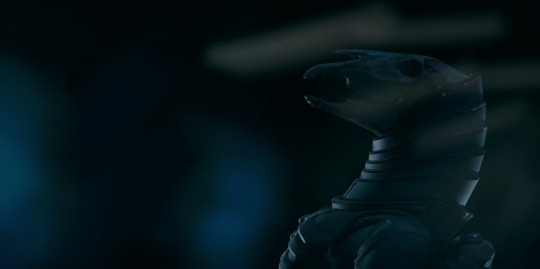
Another weird aspect of this episode was the aforementioned glass door. If I had a quid for every time a Doctor Who 60th anniversary special ended with characters being separated by a glass door in a spaceship, I’d have two quid. Which isn’t a lot, but it’s weird that it’s happened twice. Also weird is that this episode marks the second time since we met the Fourteenth Doctor that the TARDIS enters a location by slamming into a wall. The first time being the Children in Need special “Destination: Skaro.” I would say this feels significant, but the TARDIS does land smoothly next to Cyber Dog at the beginning of “The Star Beast.” Another crash landing which could also mean nothing would be the TARDIS slamming into the tree that drops an apple on Isaac Newton’s head. Speaking of meaning nothing, what even was the point of that scene? Was it all to set up the mavity joke and the Doctor’s queerness? Or did it have a greater meaning? If not, they really should have just cut it all together. Perhaps air it as a minisode the day before “Wild Blue Yonder.” As an episode opener, it sticks out like a sore thumb.
After the Doctor almost escapes with the wrong Donna, the TARDIS gets a chance to show off its new ramps by using them to eject Not-Thing Donna like a middle-aged bowling ball. Our little android friend, now sped-up to real-time pushes the destruct button and takes the ship and Not-Things with it, thus finishing the Horse Captain’s brave mission to save the universe. I was sad we never really got to know the little robot. Its design reminded me a bit of Marvin the Paranoid Android from “The Hitchhiker’s Guide to the Galaxy.” I was ready to love its personality and then mourn its sacrifice. It’s weird that in some ways, the fan theory that we would see twisted versions of the Doctor did come halfway true. Only in this version, there was no evil Matt Smith or Peter Capaldi. It’s been a bit interesting to see the fan theories come so close yet remain so far away.
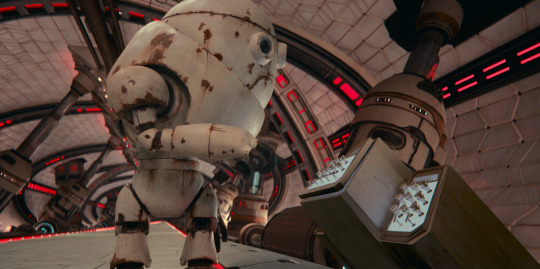
Bookending the episode is another scene removed from the main storyline, only this is a book I actually want to read. Returning the TARDIS back to the Cyber Dog location where it was last seen, we get our first glimpse of Wilfred Mott since “The End of Time.” Sadly, it’s also the final time Bernard Cribbins will grace the screen of Doctor Who ever again. This brief cameo was all they were able to film before Cribbins passed away in 2022. I think it’s safe to assume that most of us got a bit teary-eyed seeing ol’ Wilf one last time. As the Fourteenth Doctor said “I loved that man.” I’ve never met a Whovian who didn’t love his character. Seeing Wilf waiting for the Doctor and Donna to return, still believing in the Doctor after all these years, is exactly how you want to remember him. An ever-loyal soldier who doesn’t leave his post. And so shall he never leave our hearts. It was bitter-sweet, but I’m so glad we got to say goodbye.

Ultimately, this episode kept me engaged throughout its entire runtime. But where it falls short of “Midnight,” is in its inability to create the same level of tension. Perhaps it has to do with the special effects revealing so much under bright lighting. There is less left to our imaginations this time around, and therefore the scares are more on the surface. This doesn’t automatically make them uninteresting, only less engaging. It reminded me at times of the special effects from the new “It,” film series. At times it was creepy and at other times it felt like something from a computer. I’m still deeply interested in the dread the Doctor felt after introducing superstition at the edge of the universe, where the rules of reality are less defined. That seems like a bigger plot point that furthers my belief that RTD plans to continue breaking Doctor Who wide open. If I were to compare the quality of “Wild Blue Yonder,” to previous Doctor Who stories, I would go with “The Idiot’s Lantern,” or maybe “Flatline.” Both of these are episodes I enjoy but they aren’t earth-shattering either. As I said in my “Eve of the 60th” article, I would settle for competent and competent was what we got. I'm still very excited for what's to come.
#Doctor Who#Wild Blue Yonder#Fourteenth Doctor#David Tennant#Donna Noble#Catherine Tate#Not-Things#TARDIS#Russell T Davies#Wilfred Mott#Bernard Cribbins#RIP Bernard Cribbins#60th anniversary#Doctor Who 60th Anniversary#Isaac Newton#Nathaniel Curtis#BBC#timeagainreviews
23 notes
·
View notes
Text
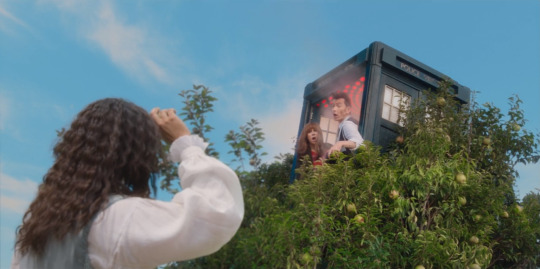



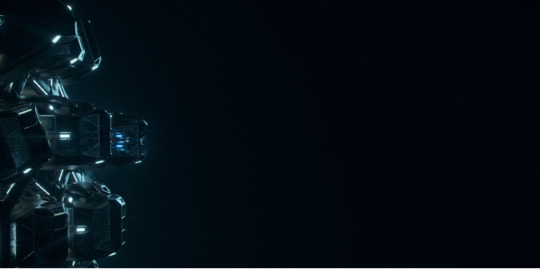



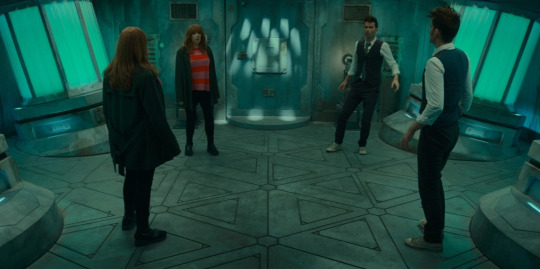

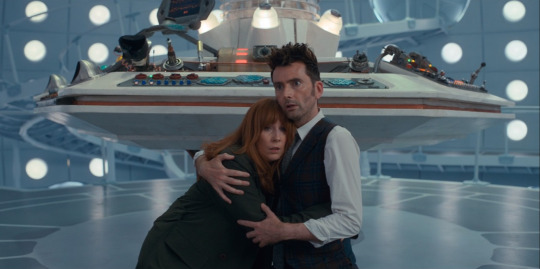
**Shots of the Episode**
Doctor Who: Wild Blue Yonder (2023)
Director: Tom Kingsley
Cinematographer: Nick Dance
#shots of the episode#doctor who#wild blue yonder#david tennant#catherine tate#nathaniel curtis#tom kingsley#nick dance#russell t davies#bbc#sci fi#disney+#2023#2023 tv#10th doctor#tenth doctor#doctor who 60th anniversary#14th doctor#screencaps#fourteenth doctor#cinematography#screenshots#stills#2.20:1#tv stills#tv screencaps
18 notes
·
View notes
Text
Apples weren't the only thing he was eating
•
TikTok Link
9 notes
·
View notes
Text

It's A Sin (s01e03)
#mine#screens#it's a sin#ritchie tozer#olly alexander#roscoe babatunde#omari douglas#roscoe#ash mukherjee#nathaniel curtis#its a sin#series#serie
18 notes
·
View notes
Text
Not enough people talking about how they race-swapped Isaac Newton?

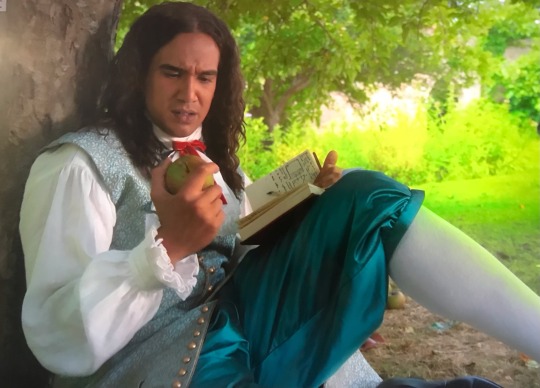
Go for it I guess, but I feel like this sort of thing is how you get Miku Jefferson
#doctor who#wild blue yonder#isaac newton#nathaniel curtis#doctor who spoilers#doctor who 60th anniversary#doctor who 60th
8 notes
·
View notes
Text
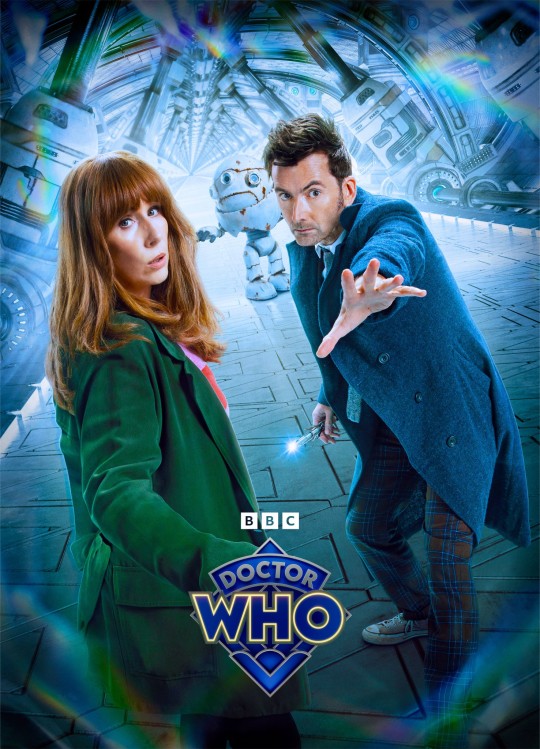
W A T C H I N G
#DOCTOR WHO#WILD BLUE YONDER#Doctor Who: WILD BLUE YONDER#2023#DAVID TENNANT#CATHERINE TATE#Russell T Davies#Nathaniel Curtis#Susan Twist#BERNARD CRIBBINS#BBC#TARDIS#DISNEY+#WATCHING
10 notes
·
View notes
Text
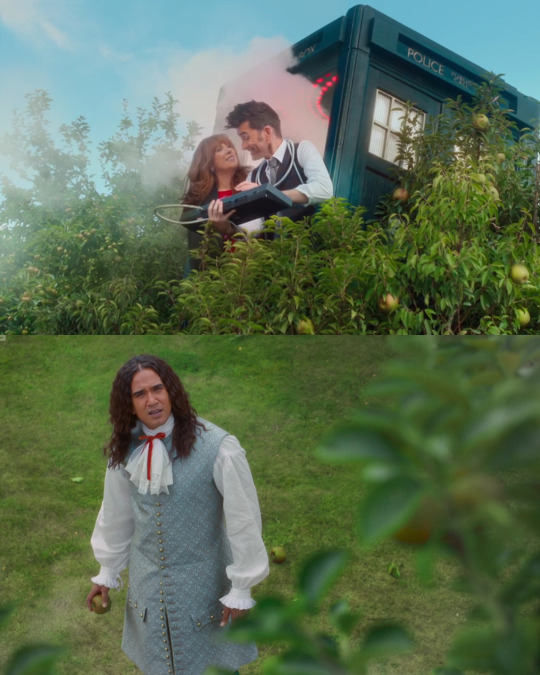
Doctor Who - "Wild Blue Yonder" (2023)
#doctor who#dr who#new who#whoniverse#whovian#tardis#the tardis#gallifrey#time lords#sonic screwdriver#david tennant#catherine tate#donna noble#sci fi#screencaps#wild blue yonder#60th anniversary#doctor who 60th anniversary#nathaniel curtis#isaac newton#the doctor#time and relative dimension in space
64 notes
·
View notes
Text
'The moment Jodie Whittaker’s Doctor regenerated will go down history as one of the great rug-pulls of modern Who.
There she was, standing on a rocky outcrop, ready to hand over the mantle to the next in line. But this time there was an extra twist for those watching. Instead of regenerating into Ncuti Gatwa, who was announced as the next Doctor in 2022 after rising to fame in Netflix's Sex Education, people instead saw David Tennant standing in his place, ready to reprise the role he’d last held thirteen years ago.
To quote the Doctor, as he reacted to this change of plans: what?!
With that catchphrase (can a word be a catchphrase? With Tennant, anything is possible), he was back in the TARDIS, and I was immediately reinvested – catapulted back in time to a version of my teenage self where long scarves were sacred and Converse magically looked good when paired with pinstripe suits.
I wasn’t around for original Who, but watched from behind the sofa as my father (a lifelong fan) turned on the telly for the reboot in 2005. Terrifying as the Daleks may be, this show is catnip for kids: the monsters; the prospect of entering a magic box and going for adventures in time and space; and above everything else, the knowledge the Doctor will ultimately save the day.
Heading up the first rebooted series, Christopher Eccleston came and went, with a brooding kind of mystique to him – a bit too dour for my nine-year-old self, but the baddies kept me hooked: the gas-mask zombies, the Slitheen, even (shudder) the return of the Daleks. And just as I was getting properly into the show, along came David Tennant.
For millions of fans like me, Tennant wasn’t just a version of the Doctor: he was the definitive Doctor. Taking the reins from Eccleston after the show’s excellent but troubled first season (Eccleston has talked about how leaving the show put him on a BBC blacklist and almost destroyed his career), he immediately breathed fresh life into the character.
Alongside the showrunner Russell T Davies (who himself has an impressive list of credits to his name, including It's A Sin and Queer as Folk) Tennant helped launch Who into the stratosphere: suddenly, watching the show was (wait for it) cool, something that both kids and adults would tune in for. In its prime, Doctor Who under Tennant pulled in as many as 13m viewers - a world away from Jodie Whittaker's swansong, which only pulled in four.
Davies’ combination of grounded characters – he always took the time to flesh out the companion’s families and make their lives feel meaningful – and tightly plotted episodes was a winning combination. Think The Parting of the Ways, where the Doctor and Rose tearfully bid farewell on a bleak beach in Norway; or the haunting Midnight, which must be among his bleakest.
Of course, a great script is one thing, but selling it is another. As the face of the show, Tennant could switch from cheeky chappie to ultra-serious blaster of baddies in a nanosecond; yes, Eccleston had the gravitas, but Tennant had that, plus sass. And clearly, he loved playing the Doctor: a lifelong fan himself, he once told GWR FM, "Who wouldn't want to be the Doctor? I've even got my own TARDIS!" It’s a fair point.
Needless to say, I lapped it up; even more so when Catherine Tate came on board as the permanently furious Donna. It was a golden era, but alas, all good things must come to an end. When both Davies and Tennant left in 2010, the show struggled. Matt Smith was charismatic and chirpy, yes, but the writing, under Steven Moffat’s tenure, was blander, the plots more slapdash. Where were the classics: the Blinks, the Empty Children?
As the years progressed, I stopped watching entirely – as did many others. Doctor Who was no longer cool; it was once again the domain of nerds and dedicated fans who were invested enough in the show's lore that the fiendishly complicated scripts made sense (or indeed the show's revolving catalogue of rebooted monsters from the original series). For some, the bad patches were worth toughing out. Which is fine, of course; I’m a nerd myself.
Something was missing; a spark, perhaps. Both Jodie Whittaker and Peter Capaldi’s tenures suffered as a result of poor scriptwriting; the plots were shoddy. The Doctor suddenly started sprouting mysterious incarnations. Why were the Weeping Angels suddenly everywhere? I would read the series reviews and roll my eyes at the screen, longing for the good old days.
I was just about ready to hang up my sonic screwdriver for good - at least until I heard that Russell T Davies was coming back as the series’ showrunner once more, along with Tennant and Catherine Tate as his companion Donna. The classic gang, back together again, and returning for one more bite at the apple before passing on the mantle to Gatwa.
Bringing Tennant back was a masterstroke from Davies. If my ears pricked up, so too did the ears of thousands of ex-Whovians, hungry for some sweet nostalgia. And we’ve been amply rewarded: that first sight of Tennant strolling around London in his revamped Tardis made me squeal like a child. As did the first mention of “Allons-y!”, his old catchphrase.
Watching him bounce around the universe with old companion Donna has been a joy; even better, this is a Doctor brought firmly into the modern-day universe. He’s still recognisably himself, but this time around he has crushes on Nathaniel Curtis’ Isaac Newton (“He was so hot... oh! Is that who I am now?”) and lets Donna and her daughter Rose (Yasmin Finney) school him on pronoun usage. You can sense the mischief in Davies’ pen, as well as the clear love he still has for the series, peppering his scripts with Easter eggs galore.
So as the third and final special approaches, I’m not ready to let Tennant go yet. How could I be? We've only just gotten him back, but wibbly-wobbly timey-wimey rolls on, and it's been a joy to see the show looking more invigorated than it has in years.
Job done? With Davies in charge, I'm optimistic that the soft reboot he and Tennant have kick-started will continue in style. Gatwa has big shoes to fill, but one thing's for certain about Doctor Who: it's all about change. Roll on the future... but if Tennant ever decides to make another guest appearance, I'll be there in the blink of a Weeping Angel's eye.'
#David Tennant#Doctor Who#60th Anniversary#Russell T. Davies#Catherine Tate#Donna Noble#Ncuti Gatwa#Peter Capaldi#Jodie Whittaker#The Parting of the Ways#Doomsday#Midnight#Christopher Eccleston#Rose Tyler#Billie Piper#Nathaniel Curtis#Issac Newton#Rose Noble#Yasmin Finney#Matt Smith#It's A Sin#Queer as Folk
32 notes
·
View notes
Photo
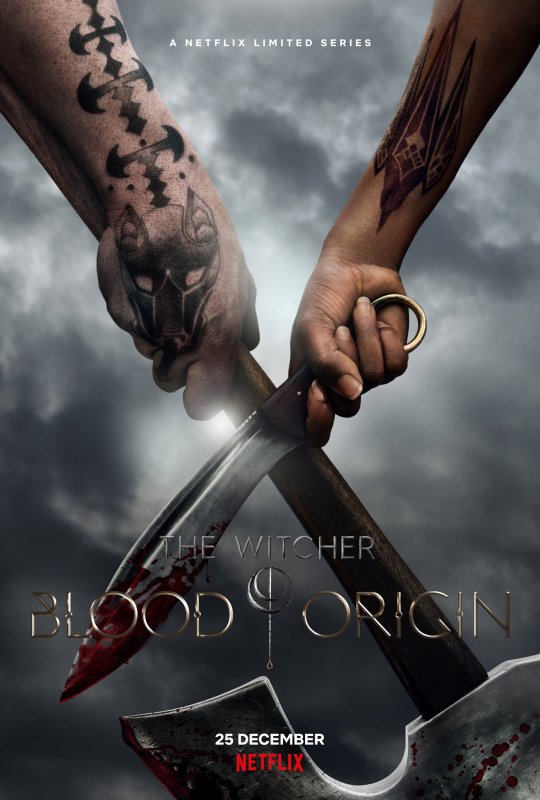
Netflix’s The Witcher prequel series, The Witcher: Blood Origin, will stream on December 25, 2022.
#The Witcher Blood Origin#The Witcher Netflix#The Witcher#Sophia Brown#Michelle Yeoh#Laurence O'Fuarain#Lenny Henry#Mirren Mack#Nathaniel Curtis#Dylan Moran#Hivemind#Platige Image#Netflix#television#live action#live action television
100 notes
·
View notes

